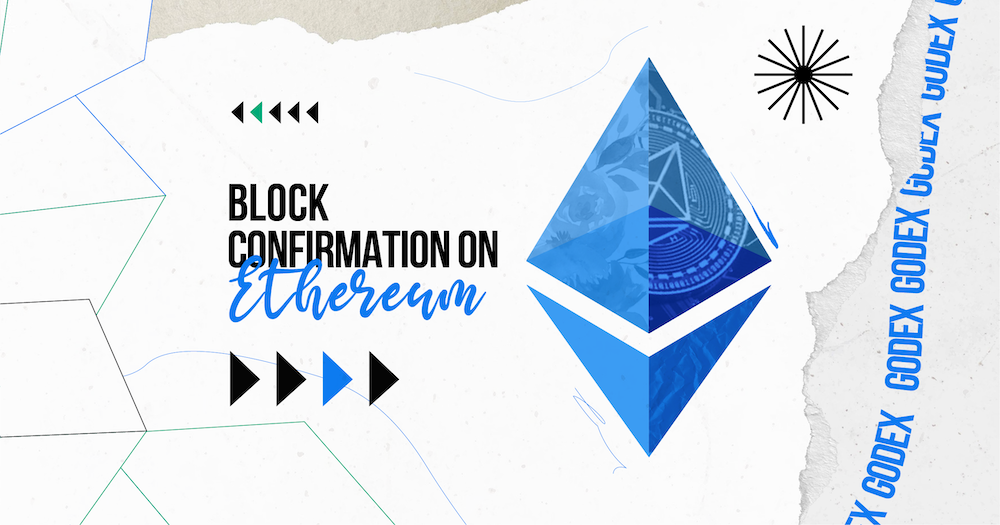Table of Contents
All Ethereum users have ever had to wait for confirmations. But how many block confirmations Ethereum needs? It’s a good question. Let’s imagine the situation: you’re designing a particular application in the blockchain and generating logs through transactions. You also crafted an event listener that informs when new ones are being released. Of course, you’d prefer the time between logs generation and this listener’s reaction to it to be as short as possible. But the time needed to create a block here is about 12 seconds while getting 7 block confirmations suggests all 4 minutes. Obviously, it ruins the whole venture. We’re not here to give you the solution to this, but rather to give you a good grasp of what Ethereum confirmations are and how they work.
What is Ethereum (ETH)?
They call themselves a home to digital currency, worldwide payments, and applications. It is a blockchain portal that possesses its own programming language and cryptocurrency – ETH. As a network, it represents an unregulated by third parties or intermediaries ledger, open-source and accessible to anyone. It is used for tracking and registering transactions.
The users of the network can do anything with applications on the platform and use ETH as payment. Since the portal itself is decentralized, apps being created, published, and monetized on it are called ‘dapps’. As for a cryptocurrency, ETH takes second place in terms of market value after Bitcoin (May 2021).
Now, how many confirmations for Ethereum are necessary? Let’s find out in detail what they mean.
What is a Block Confirmation on Ethereum?
When transferring ETH to another wallet address, this happens when the Ethereum wallet is waiting for blocks. First, a sender puts in a transaction to the Ethereum blockchain. It is placed in a queue and later is included in the blockchain by participants. They are called validators or miners. Once the transaction joins the block, it is now considered its initial block confirmation.
In other words, a block confirmation means a block in the blockchain has a transaction joined to it. Thus, if a transaction has 15 block Ethereum confirmations, then validators had 14 blocks mined as the block was mined that comprised a transaction.
Why is it crucial? After the transaction is included in the block, the more blocks are suggested to the blockchain, the bigger the likelihood that it is executed. So, how many confirmations does Ethereum need? In general, a transaction is finished after six Ethereum confirmations.
Why are confirmation requirements necessary?
There’s an issue of double spending every crypto developer faces nowadays. To ensure that this won’t happen, funds are not credited to the point then a particular number of confirmations have been made.
For the record, double spending is only a digital currency-related issue. This means that when paying with BTC, for example, copying the transaction details and rebroadcasting it might happen again. Thus, the same currency can be spent a few times by one holder.
So, how many confirmations Ethereum needs? The more confirmations obtained, the more irrevocable the transaction is.
How long do Ethereum confirmations take?
ETH confirmation time depends on a rate that is required by the blockchain. For example, on the Bitcoin one, it takes on average 10 minutes to mine a block. And some crypto exchanges credit BTC holdings to a user’s account after 5 confirmations, which takes around 40 minutes. Yet, sometimes Bitcoin validators need 30 or 60 minutes to mine one block aka 1 confirmation, which cannot be regulated by the same exchange.
Usually, currency exchanges do not provide public information about the exact number of confirmations needed to secure a proper deposit. Still, this cannot be much. Most ones close in a minute or two. Thus, it’s quite impossible to anticipate how much time pending confirmation Ethereum takes.
How Many Block Confirmations Does Ethereum Need?
The founder of Ethereum explained ETH confirmation time in one of his blog posts. It includes graphs showing how many confirmations are mandatory for a transaction considering the average block time confirmation. According to his statements, a 17-second blockchain will need 10 confirmations aka 3 minutes to ensure 99.99% of security. Ethereum is in the 15-second average block production time range, meaning that for the transaction confirmation Ethereum will take 12 confirmations for completion.
How to buy Ethereum?
Now, if you’re willing to deal with ETH, you need to find a trusted and reputable crypto exchange, which is Godex.io is. After finding it, you ought to create an account. The platform allows using it anonymously.
The founders have come up with the idea of high-quality service and in the meantime total respect for the client’s privacy. The fact of not asking for personal data eliminates any data leakage, hacking threats from the equation, and users can enjoy the platform freely.
The platform offers a fixed rate for any digital asset, meaning one can exchange as many accessible coins as they want, and the commission won’t change during the transaction.
So, the very next step will be to deposit your fiat currency to be able to exchange it to ETH. By the way, Godex is identifying the best rates in the industry when one is making an exchange. Finally, you can withdraw ETH to a wallet and use it for your trading purposes.
Start a Cryptocurrency exchange
Try our crypto exchange platform
Disclaimer: Please keep in mind that the content of this article is not financial or investing advice. The information provided is the author’s opinion only and should not be considered as direct recommendations for trading or investment. Any article reader or website visitor should consider multiple viewpoints and become familiar with all local regulations before cryptocurrency investment. We do not make any warranties about reliability and accuracy of this information.
 Peter Moore
Peter Moore 
Read more
Ripple (XRP) price has been widely discussed by the cryptocurrency community since it has gained public interest in 2017, even though it was founded by Chris Larsen and Jed McCaleb years before. The platform offers innovative blockchain solutions for the banking sector and has the potential to disrupt the whole finance industry. In recent years, […]
In this article we will talk about Ripple (XRP) and its price prediction. What is Ripple (XRP) Ripple is a San Francisco-based startup that was launched in 2012 by Ripple Labs as a global network both for cross-currency and gross payments. Ripple history began in 2004 with the discussions around the digital coin in the […]
You may well think that an article dedicated to a Tether price prediction or the Tether price in general is a little bit strange — it is a stablecoin after all. However, the price of Tether does fluctuate significantly, although it is nowhere near as volatile as non-stablecoin cryptos. This means that staying up to […]
In the article we share our vision at Zcash cryptocurrency main features and add several price predictions. As cryptocurrencies gain global acceptance and decentralisation slowly enters our lives, privacy becomes the main concern when talking about blockchain adoption. It is no secret that distributed ledger is by far the most secure and transparent technology ever […]
Chiliz coin (CHZ) offers a compelling opportunity for traders interested in the intersection of blockchain technology and sports. By enabling fans to influence team decisions through the Socios app, Chiliz directly monetizes fan engagement and connects with major sports teams like Juventus and Paris Saint-Germain. These partnerships not only enhance the platform’s visibility but also […]
The exponential growth of Bitcoin Satoshi Vision (BSV) against the general bear trend on the cryptocurrency market in autumn 2019 has impressed the community. Due to the increasing market capitalization, the newly emerged altcoin was ranked 5th on CoinMarketCap and managed to maintain its high position at the beginning of 2020. In the article we […]